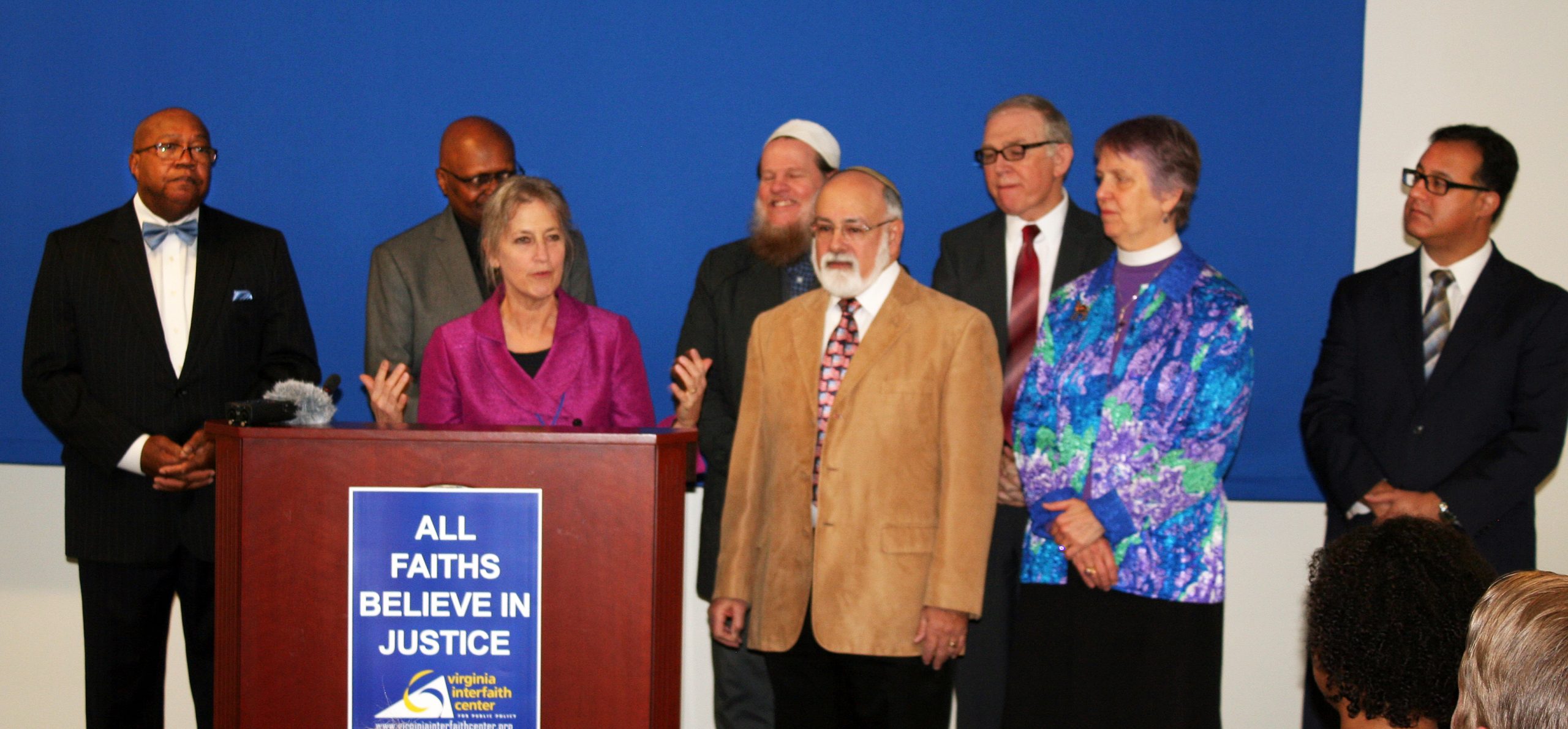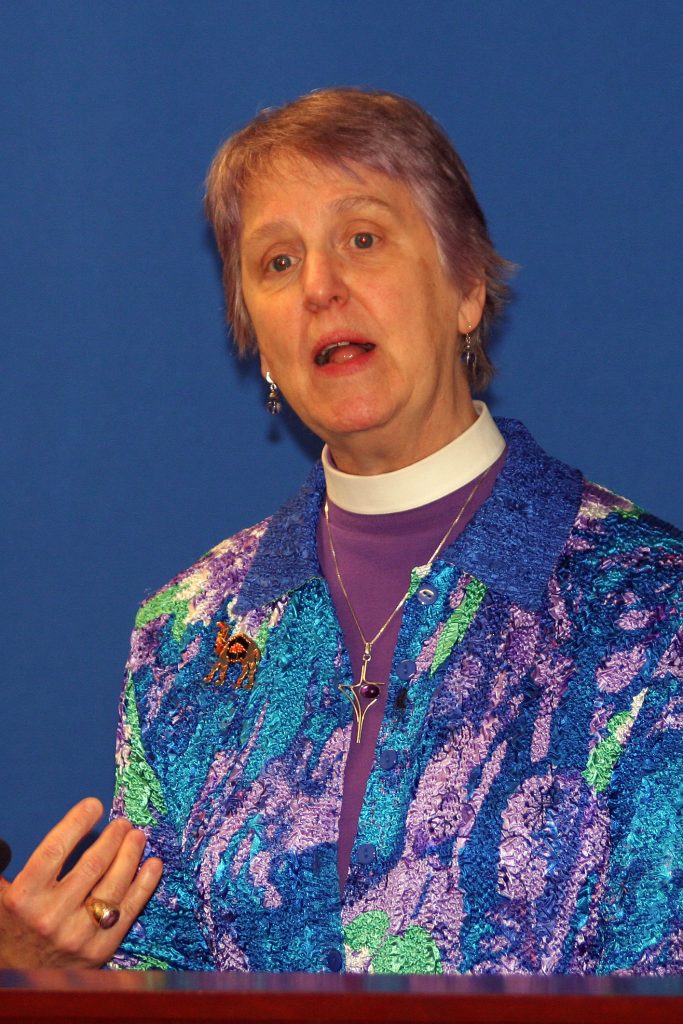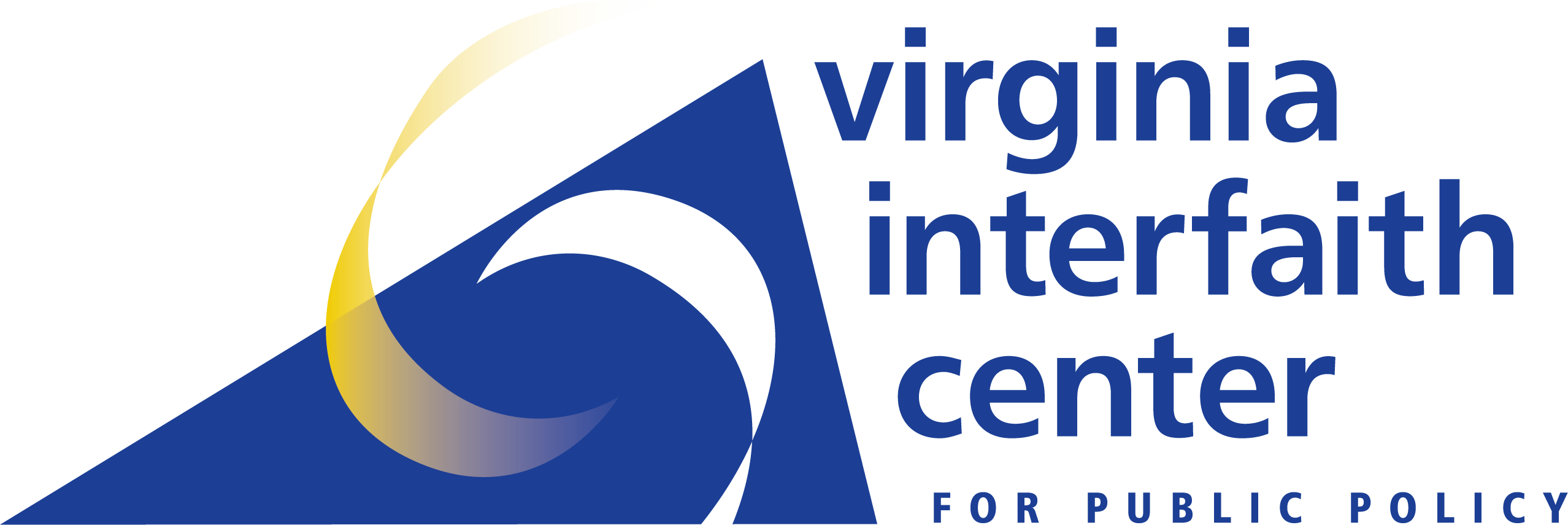
Interfaith leaders plead for General Assembly to do the right thing on healthcare
A group of faith leaders came to the legislative office building today to join their voices in asking the General Assembly to set aside partisan politics and expand healthcare access in the state’s budget. They are just a small representative of the more than 850 faith leaders from across the Commonwealth who have signed a letter that ask the legislature to expand healthcare as a moral action in supports of the human dignity of all Virginians.
About 300,000 working Virginians would benefits by closing the healthcare “coverage gap.” Most of those lack insurance because they make too little to qualify for subsidies on the Marketplace and make too much to qualify for the state’s Medicaid program. And that means many can’t get the care they need to go to work, to take care of children, and to be healthy, productive members of society.
“A recent Hospital Association poll showed that 83 percent of Virginia voters support Medicaid expansion,” said Kim Bobo, Executive Director for the Virginia Interfaith Center for Public Policy, sponsors of the press conference. “I suspect if you polled people of faith – especially those active in their churches, synagogues and mosques – the support would be even higher. Why? We love our neighbors.”
“I stand today unapologetically and unashamedly advocating for the poor, the marginalized and all of God’s children asking the legislature to vote for full Medicaid expansion in the state of Virginia,” said the Rev. Warren LaSane, Executive and Stated Clerk of the Synod of the Mid-Atlantic of the Presbyterian Church. “Expanding access to healthcare is a moral imperative. It will improve the quality of life for everyone.”
“There are nearly 300,000 don’t have any medical coverage nor can they pay out of pocket expenses for themselves or their families. They find themselves in this very frightening situation where even one illness can wipe them out financially forever,” said The Rev. Tom Joyce, Assistant to the Bishop of the Virginia Annual Conference of The United Methodist Church. “Few times within a person’s life is an individual are presented with the opportunity to do something for the common good. To take an action that will so positively affect the lives of tens of thousands of people. … This is one of those times.”
 Bishop Susan Goff of the Episcopal Diocese of Virginia (left) said that “closing the gap will cost the Commonwealth relatively little. It has the potential to bring jobs to the commonwealth, to save hospitals in small communities and to help us better address the horrific opioid epidemic in Virginia.”
Bishop Susan Goff of the Episcopal Diocese of Virginia (left) said that “closing the gap will cost the Commonwealth relatively little. It has the potential to bring jobs to the commonwealth, to save hospitals in small communities and to help us better address the horrific opioid epidemic in Virginia.”
Imam Ammar Amonette of the Islamic Center of Virginia stated that “the Muslim community of Virginia believes that healthcare is an essential, basic human right. It’s not a matter of charity to extend healthcare to people who do not have it, it is an act of human decency. It reflects on our mortal status as citizens of Virginia. Having a healthy population is essential to every one of us. It’s a matter of faith.”
“Genuine healthcare protects and heals these lives, each created in the likeness and image of God, each possessing a human dignity that cannot be measured,” said Jeff Caruso, Executive Director of the Virginia Catholic Conference. “At its core, healthcare is for all, not a commodity that is within reach for some and out of reach for others. Virginia’s lawmakers should seize the opportunity they have this year to close the coverage gap and affirm what healthcare truly is: not a privilege, but a right.”
“Traveling around to our 1,079 churches, many of which have healthcare ministries, we see first-hand the challenge that people have,” said Rev. Eli Burke of the Baptist General Convention of Virginia. “We find people working two or three jobs who still cannot afford health insurance. We realize that there is a great need to expand healthcare. There is no reason not to do it. We hope that our legislators will realize that they can do this, should do this which in many ways would be a core value to us, to proclaim the acceptable year of our Lord.”
“All Jewish organizations worldwide have endorsed healthcare for all,” said Rabbi Gary Creditor, rabbi emeritus at Temple Beth El in Richmond. “You might ask ‘what is the Jewish prime directive?’ It’s saving a life. This initiative is for that purpose… an action to save lives.”
Closing this coverage gap would:
- Provide comprehensive healthcare for 300,000 low-income Virginians. This is the most important reason to close the coverage gap. Currently, most of these Virginians only go to free clinics or emergency rooms when they have a crisis. This means their chronic problems are not addressed and problems are not caught and dealt with in their early stages. Providing comprehensive healthcare is the smart, compassionate and cost-effective thing to do to help the Commonwealth’s residents.
- Help address key state priorities. Virginia is facing a tough budget year with little money to meet critical priorities. Drawing down federal funds to close the coverage gap could be used to directly address mental health needs and the opiate crisis through direct services and treatments for uninsured adults.
- Create approximately 15,000 new jobs. Drawing down federal Medicaid dollars will bring money to hospitals, clinics, and community-based providers and is estimated to result in adding 15,000 new health care jobs in the state.
- Save rural hospitals. Many rural hospitals are in jeopardy of closing down because they don’t have enough paying customers. Some hospitals, like Lee Regional Medical Center, have already closed down, leaving their communities without an accessible hospital and vital medical services. Most of these hospitals could stay open if Virginia expanded health coverage so that hospitals could be reimbursed for the coverage they provide to low-income Virginians. A new study just released Tuesday by the journal Health Affairs confirmed these conclusions.
